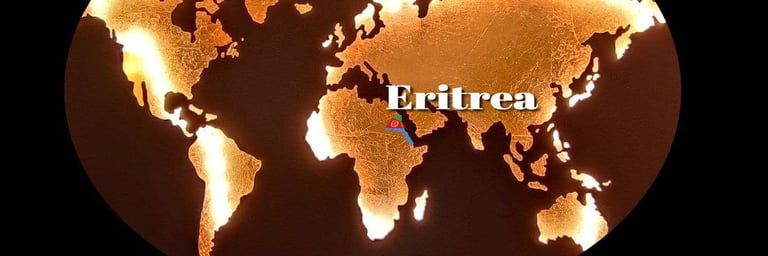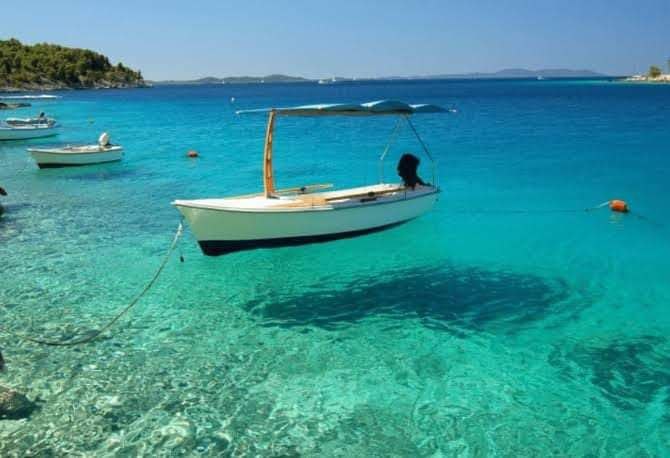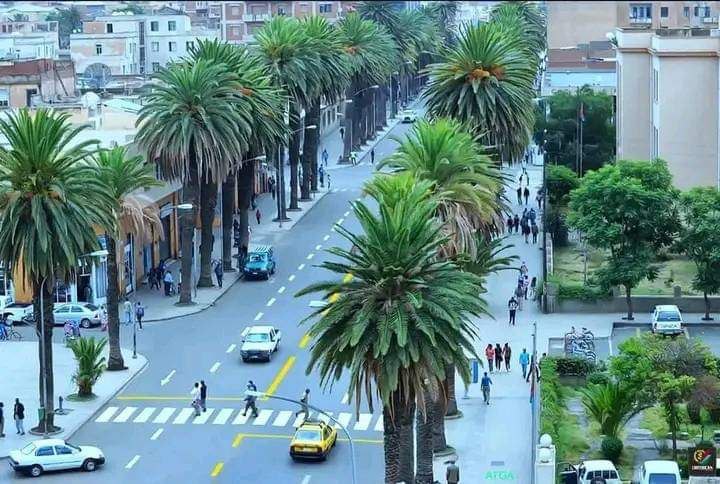Diaspora Tourism: Reconnecting Eritreans to Revitalizing Eritrea
Diaspora tourism, the act of diaspora members and their descendants traveling back to their ancestral homeland, is more than just a vacation. It's a journey of identity, a search for roots, and a powerful tool for national development.....
ENGLISH
Tesfalem Naizghi
2/16/20254 min read
Diaspora tourism, the act of diaspora members and their descendants traveling back to their ancestral homeland, is more than just a vacation. It's a journey of identity, a search for roots, and a powerful tool for national development. For Eritrea, a nation with a significant diaspora, it represents a crucial opportunity for social reconnection, economic revitalization, and image transformation.
Diaspora tourism encompasses various forms, from family visits and heritage tours to medical tourism and business travel. Regardless of the specific purpose, diaspora members often inject significant funds into the local economy, benefiting small businesses and households. In Eritrea's case, the potential of diaspora tourism is particularly significant, given the pressing need for social reconnection, cultural revival, and improved mobility between the diaspora and the homeland. Engaging the diaspora goes beyond simply promoting tourism; it's about fostering a sense of belonging and breaking down barriers that have created a sense of estrangement.
However, realizing this potential requires a shift in mindset and a systemic change. A welcoming and efficient environment is crucial. When returning home feels comfortable and natural, Eritreans abroad won't need external motivation to reconnect. This necessitates trust-building between the government and the diaspora, streamlined processes for visits, and a collaborative approach involving all stakeholders in the tourism sector. Positive initial experiences are key to encouraging sustained engagement and repeat visits, leading to a multiplier effect on the economy and significant non-economic benefits.
Critically, diaspora tourism can play a vital role in reshaping Eritrea's image. Challenging the negative narratives prevalent in international media is essential, and positive experiences shared by diaspora visitors can contribute significantly to this process. The current situation, characterized by a perceived "fortress mentality" and strained relationships between the state and some members of the diaspora, necessitates a new approach. As a behavioral economist and former development agent, I believe the diaspora holds the key to unlocking Eritrea's potential. Diaspora engagement is not just a solution; it's the cure for the nation's developmental challenges.




Eritrea must bridge the gap between its people by facilitating closer ties with the diaspora. Allowing free movement in and out of the country, while maintaining necessary security measures, is essential. While Eritrea's internal peace within a volatile region is commendable, the need for diaspora engagement and internal reforms cannot be ignored. These are crucial for the country's progress towards democratization and development. Diaspora engagement is a catalyst for positive change, aligned with modern approaches to development. Diaspora tourism, therefore, serves as an entry point for this transformative process, a first step towards dismantling the "fortress Eritrea" paradigm.
Furthermore, diaspora engagement can fuel economic growth and stimulate the expansion of service markets, encourage investment in infrastructure (transport, accommodation, and related services), and inject capital into local communities and major cities like Asmara and Massawa. The new generation of Eritrean diaspor, driven by both rational economic considerations and deep emotional ties to their homeland, can and are capable of significant investment and philanthropic contributions. Their patriotism, reminiscent of the fellow revolutionary generation, is a powerful force waiting to be unleashed.
The examples of dedicate diaspora figures, like Dr. Mengis Berihu, and also the recent engagement of key opposition leaders, demonstrate the potential for peaceful and productive reconnection. The government plays a crucial role in fostering this process by creating supportive policies that appeal to all Eritrean, regardless of their past affiliations.
Learning from other nations that have successfully utilized diaspora engagement is vital. Simplifying the process of home visits and reducing all sorts of costs, marking revisiting the 2% diaspora tax, regret forms, and visa processes, are key steps.
Eritrea's strategic location in the Horn of Africa presents another opportunity. By supporting and engaging the African diaspora, Eritrea can leverage business opportunities and foster multilateral engagement, further toolkit to enhancing its development prospects.
Eritrea has a long history of recognizing the importance of its diaspora. From the struggle for independence to nation-building, the diaspora has played a vital role. The government's recent recognition of the diaspora as the "fourth front" of national development is a welcome step that needs further reinforcement. Creating an environment where all Eritreans can contribute to their homeland's transformation is the government's responsibility.
Personally, after 11 years away from Eritrea, I yearn for reconnection with my family and my roots. I envision a future where Eritreans worldwide return to their core, contributing to its growth and prosperity. So, what is next?
Looking ahead, the government must take a proactive approach to diaspora engagement. This includes creating inclusive programs, reforming the economy, redefining diaspora rights and needs, and leading the transformation process. Making travel to and from Eritrea easier and frictionless, thus, it is essential to attract diaspora visitors. The diaspora, in turn, must remain a constructive force in the democratization and development of Eritrea, channeling their investments and expertise towards building a better future. Diaspora cultural events held abroad should be encouraged to take place within Eritrea, further strengthening ties with the homeland.
Ultimately, a mutually beneficial relationship between the state and the diaspora, characterized by trust, constructive engagement, and a supportive system, is essential. The untapped potential of the Eritrean diaspora is immense, and harnessing this power is crucial for the nation's future. Diaspora engagement is not just about economics; it's about reintegrating families, strengthening the social fabric, and building a shared future. The government must recognize this and create the conditions for the diaspora to play its full role in Eritrea's transformation.
Finally, I believe diaspora tourism and visits are timely, pragmatic, and crucial for revitalizing Eritrea's social, political, and economic foundations, and for reshaping the nation's image. ERUGSA, as an organization, can and should play a catalytic role in promoting diaspora tourism and fostering stronger connections between Eritreans abroad and their homeland. What do you think? I welcome your thoughts on this important topic and encourage you to share your perspectives.


CONNECT WITH US
Empowering refugees through education and community support.
must read links
© 2024. All rights reserved.
